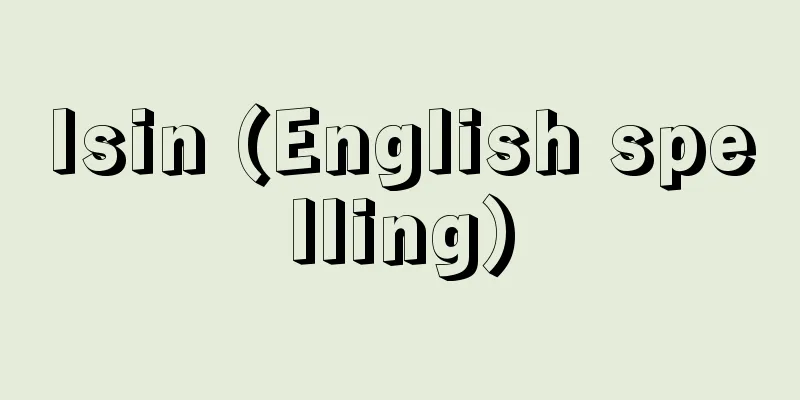Yuan Shikai - Yuan Shikai

|
The first president of the Republic of China. Born in Xiangcheng County, Henan Province. Before the First Sino-Japanese War, he demonstrated his political and military skills in Korea, and with the trust of Li Hongzhang, he was stationed in Seoul as Prime Minister Negotiations and Trade Affairs, interfering in Korea's internal affairs and foreign affairs, turning it into a vassal state. After China was defeated in the First Sino-Japanese War, he carried out modern reforms to the military system and organized the "New Army." This became the foundation for the later Beiyang warlords and Yuan's advance into politics. The generals trained by Yuan at this time became leaders of the Beiyang warlords after the Republic of China. After Li Hongzhang's death (1901), he became Governor-General of Zhili and Minister of the Beiyang War, strengthening and expanding his own power. After the Russo-Japanese War, Yuan was forced to step down temporarily due to the counterattack by Manchu bureaucrats against Yuan's expansion, but with the outbreak of the Xinhai Revolution, he was once again given full military authority, and in November 1911, he became Prime Minister and seized real power in the Qing government. In February 1912, he extracted concessions from the southern governments, and in exchange for the Qing Emperor's abdication, he became Provisional President, and the Republic of China was established. Thereafter, with the support of the imperialist powers, Yuan weakened the achievements of the revolution. He suppressed the parliament's efforts to restrict the President's authority by assassinating the Kuomintang leader Song Jiaoren, and then used force to suppress the "Second Revolution" that arose from that incident. He officially became the Grand President in October 1913, ordered the dissolution of the Kuomintang and promulgated the New Constitution Law to strengthen his dictatorship, and in 1915 launched the Imperial Movement. Yuan's government had many foreign "advisors" who sought to bolster their own countries' vested interests, and they played a major role in planning the Imperial Movement. However, with the rise of Chinese nationalism in response to Japan's Twenty-One Demands and the spread of anti-Yuan movements across the country triggered by the Yunnan Uprising at the end of 1915, the great powers also recommended the abolition of the Imperial System, and finally, in March 1916, Yuan declared the abolition of the Imperial System. He died shortly thereafter, amid the ongoing anti-Yuan movement. [Minamizato Tomoki] [Reference items] | | | |©Shogakukan Library "> Yuan Shikai Source: Shogakukan Encyclopedia Nipponica About Encyclopedia Nipponica Information | Legend |
|
中華民国の初代大総統。河南省項城県の生まれ。日清(にっしん)戦争前は、朝鮮で政治、軍事に手腕を発揮し、李鴻章(りこうしょう)の信任を得て、総理交渉通商事宜(じぎ)としてソウルに駐在し、朝鮮の内治、外交に干渉して属国化した。日清戦争の敗北後、軍制、軍隊の近代的改革を断行し「新建陸軍」を組織した。これが後の北洋軍閥および袁の政界進出の礎石となった。このとき、袁の養成した部将が民国後の北洋軍閥の首脳となる。李鴻章の没(1901)後、直隷(ちょくれい)総督兼北洋大臣となり、自己の勢力を強化拡大していった。日露戦争後、袁の伸張に対する満州人官僚の巻き返しによって、一時下野を余儀なくさせられるが、辛亥(しんがい)革命の勃発(ぼっぱつ)によってふたたび軍事の全権をゆだねられ、1911年11月に内閣総理大臣となり、清朝政府の実権を掌握した。1912年2月、南方政府の譲歩を引き出し、清帝退位と引き換えに臨時大総統の地位につき、中華民国が成立する。その後、袁は、帝国主義列強の支持を背景に革命の成果を骨抜きにしていった。大総統の権限を制約しようとする議会の動きを、国民党首脳宋教仁(そうきょうじん)の暗殺によって抑制し、さらにそれを契機に起こった「第二革命」を武力鎮圧した。1913年10月には正式に大総統となって、国民党の解散を命じるとともに新約法を公布して独裁を強化し、1915年には帝制運動を開始した。袁の政府には、自国の利権の扶植を図る多くの外国人「顧問」がおり、帝制運動の画策に大きな役割を果たした。しかし、日本の二十一か条要求に対する中国のナショナリズムの高揚、1915年末の雲南蜂起(ほうき)を契機に各地で起こった反袁運動の拡大により、列強も帝制取消しを勧告、ついに1916年3月、袁は帝制取消しを宣言した。その直後、討袁の続くなかで没した。 [南里知樹] [参照項目] | | | |©小学館ライブラリー"> 袁世凱 出典 小学館 日本大百科全書(ニッポニカ)日本大百科全書(ニッポニカ)について 情報 | 凡例 |
Recommend
Wodonga (English spelling)
A city on the Murray River in northeastern Victori...
mezzo rilievo (English spelling) mezzorilievo
Strictly speaking, it is distinguished from simpl...
Ako Yanagi - Ryuashi
Chinese poet. His given name was Yigao, later cha...
Goldenrod - Goldenrod
...The Akebono-shusuran (G. foliosa Benth.var. la...
"Angeriarekiko" - Let's hear it
…In 1803 (Kyowa 3), when he was loaned a Dutch tr...
Athabasca [Lake] - Athabasca
A large lake on the border of Saskatchewan and Alb...
River mouth port - Kakoko
A port located at the mouth of a river. A port bui...
Ibigawa River
Along with the Kiso River and Nagara River in the...
Ershov, SA - Ershov
…Schmidt's excavations had technical difficul...
Fuzz
These are short fibers less than 5 mm long that ar...
Hospitalism - hosupitarisumu (English spelling) hospitalism
This disorder occurs when children are separated ...
Memorandum of Enomoto Yazaemon - Enomoto Yazaemon's memorandum
These are two volumes of memorandums recorded by E...
International Military Tribunal for the Far East
Commonly known as the Tokyo Trials, the Internati...
Electric blanket - Denkimoufu
A sleeping heater with a heater wire built into a...
Bayanihan (English spelling)
A traditional practice of mutual aid seen in Phili...









